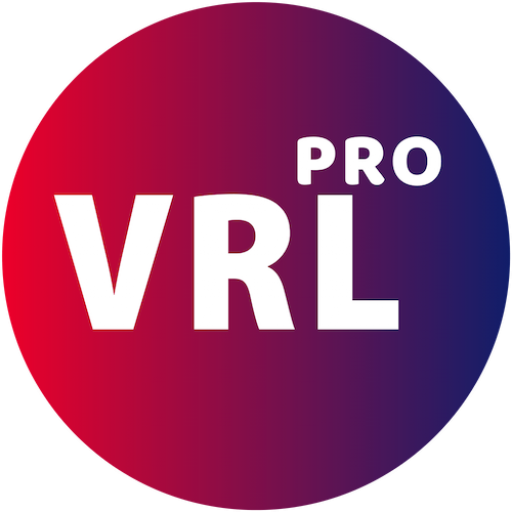Are you new to the world of SEO and looking for some guidance to get started? Don’t worry, we’ve got you covered. In this blog post, we will share 10 essential SEO tips for beginners that will help you optimize your website and improve its visibility in search engine results.
1. Introduction to SEO for Beginners
Search Engine Optimization (SEO) is a vital aspect of digital marketing that aims to optimize websites and improve their visibility on search engine result pages. For beginners, understanding the fundamentals of SEO can be overwhelming, but it is essential for anyone looking to establish a strong online presence. This article will provide you with ten essential SEO tips to help you navigate through the complexities of SEO, increase your website’s organic traffic, and improve your search engine rankings. From keyword research and on-page optimization to off-page strategies and monitoring performance, this guide will equip you with the knowledge and tools to kickstart your SEO journey and achieve success in the digital landscape. Let’s dive in!
1. Introduction to SEO for Beginners
1.1 What is SEO?
So you’ve heard the term SEO thrown around a lot, but what exactly does it mean? SEO stands for Search Engine Optimization, and it’s the art of getting your website to rank higher in search engine results. In simpler terms, it’s the secret sauce that helps you get more organic (free!) traffic from search engines like Google.
1.2 Why is SEO important for beginners?
If you’re a beginner in the world of websites and online business, SEO can be a game-changer. Why? Because without SEO, your website may not be getting the visibility it deserves. Think about it – if your website doesn’t show up on the first few pages of search results, chances are people won’t find it. And if people can’t find your website, how can they become customers? So, whether you’re running a blog, an e-commerce store, or an online portfolio, understanding the basics of SEO is crucial for getting your website noticed.
2. Understanding Keyword Research and Optimization
2.1 Importance of keyword research
Keywords are the foundation of SEO. They are the words or phrases people type into search engines when looking for information, products, or services. Keyword research helps you identify the specific keywords your target audience is using, allowing you to optimize your website accordingly. By understanding the keywords relevant to your business, you can create content that aligns with what people are searching for, increasing your chances of ranking higher in search results.
2.2 Tools and techniques for effective keyword research
Keyword research can seem intimidating, but fear not! There are plenty of handy tools to help you find the right keywords. Tools like Google Keyword Planner, SEMrush, and Moz Keyword Explorer provide insights into popular keywords, search volumes, and competition levels. Additionally, techniques like competitor analysis and brainstorming can also uncover valuable keywords. The key is to find a balance between high search volume and low competition keywords that are relevant to your website.
2.3 Keyword optimization strategies
Once you’ve identified your target keywords, it’s time to optimize your website for them. Start by incorporating keywords naturally into your website’s content, page titles, meta descriptions, and URLs. But be careful not to overstuff your content with keywords, as it can harm your rankings. Remember, the goal is to provide value to your readers while signaling to search engines what your website is all about.
3. On-Page SEO Techniques and Best Practices
3.1 Title tags and meta descriptions
Title tags and meta descriptions are like the book covers of your web pages. They provide concise summaries of your content to both search engines and users. Make sure your title tags and meta descriptions are compelling, accurately represent your content, and include relevant keywords.
3.2 Heading tags and keyword usage
Heading tags (H1, H2, H3, etc.) help structure your content and make it easier for readers to navigate. Including keywords in your heading tags can provide additional context to search engines. Just remember to use headings sensibly and avoid keyword stuffing.
3.3 URL structure and optimization
A clean and descriptive URL structure is not only user-friendly but also helps search engines understand your content. Including relevant keywords in your URLs can further boost your chances of ranking higher. Avoid long and convoluted URLs and opt for concise, keyword-rich URLs instead.
3.4 Optimizing content with relevant keywords
Creating high-quality content that addresses your audience’s needs is essential. However, optimizing that content with relevant keywords is equally important. Incorporate your target keywords naturally throughout your content, including in headings, paragraphs, and image alt tags. But remember, always prioritize the user experience and avoid keyword stuffing. Nobody likes reading content that sounds like a robot wrote it.
4. Off-Page SEO Strategies to Boost Website Authority
4.1 Importance of off-page SEO
Off-page SEO refers to activities done outside your website to improve its visibility and credibility. It’s like the digital version of word-of-mouth marketing. Off-page SEO helps your website build authority, increase brand awareness, and attract more organic traffic. So, don’t neglect the power of off-page SEO in your optimization efforts.
4.2 Building quality backlinks
One of the most powerful off-page SEO strategies is building quality backlinks. Backlinks are links from other websites that point to your website. Search engines consider backlinks as votes of confidence. The more high-quality backlinks you have, the more trustworthy and authoritative your website appears. Aim to get backlinks from reputable websites in your industry through techniques like guest blogging, outreach, and creating share-worthy content.
4.3 Social media promotion and engagement
In today’s digital age, social media can’t be ignored. It’s a fantastic platform for promoting your website, engaging with your audience, and building brand visibility. Share your content on social media channels relevant to your target audience. Encourage social sharing, comments, and discussions to boost engagement and increase your website’s reach.
4.4 Guest blogging and influencer outreach
Guest blogging is an excellent way to showcase your expertise and reach a wider audience. Look for reputable websites or blogs in your niche that accept guest posts and contribute valuable content. This not only helps you build backlinks but also positions you as an authority in your field. Additionally, collaborating with influencers who have a strong online presence can expose your website to their followers, generating more traffic and brand recognition.
Remember, SEO is an ongoing process, and it takes time to see results. So, don’t get discouraged if you don’t see instant success. Keep learning, experimenting, and refining your SEO strategies, and before you know it, your website will be climbing up the search engine ranks!
5. Creating SEO-Friendly Content: Tips and Guidelines
5.1 Importance of high-quality content
When it comes to SEO, content is king. Search engines love high-quality content, and so do your users. Creating content that is informative, engaging, and unique not only helps your website rank higher in search results but also keeps your visitors coming back for more. So, invest your time and effort in crafting valuable content that meets the needs of your target audience.
5.2 Creating engaging and valuable content
To create content that stands out, you need to understand your audience’s pain points and provide solutions. Use clear and concise language, break up your content into easy-to-read sections, and incorporate visuals like images and videos. Don’t forget to optimize your titles and headings with relevant keywords to improve your chances of ranking higher in search results.
5.3 Optimizing content for readability and user experience
Make your content easy to digest by using bullet points, numbered lists, and subheadings. Use shorter sentences and paragraphs to keep your readers hooked. Additionally, pay attention to your website’s loading speed and mobile-friendliness to ensure a smooth user experience. Remember, happy users are more likely to stay on your site and share your content, which can ultimately boost your SEO efforts.
6. Technical SEO Checklist for Beginners
6.1 Website speed and performance optimization
Speed matters! Optimization techniques like caching, compressing images, and minimizing code can significantly improve your website’s loading time. Remember, a slow website can frustrate users and hurt your SEO rankings, so don’t neglect this crucial aspect.
6.2 Mobile-friendliness and responsive design
In today’s mobile-centric world, having a mobile-friendly website is non-negotiable. Ensure that your site is responsive and adapts seamlessly to different devices and screen sizes. This will not only enhance the user experience but also lead to better search engine rankings.
6.3 Structured data and schema markup
Structured data helps search engines understand your website’s content better. By implementing schema markup, you can provide additional context and metadata to your web pages, making it easier for search engines to display relevant information in search results. This can lead to higher click-through rates and improved visibility.
6.4 URL canonicalization and redirects
Redirects and canonicalization are technical aspects of SEO that help search engines understand the preferred version of your web pages. By setting up proper redirects and canonical tags, you can consolidate your website’s authority and avoid duplicate content issues that could harm your SEO efforts.
7. Mobile Optimization and SEO Considerations
7.1 Importance of mobile optimization
Did you know that more than half of all web traffic comes from mobile devices? That’s why optimizing your website for mobile is crucial. Mobile optimization ensures that your site looks and functions flawlessly on smartphones and tablets, providing a positive user experience and boosting your chances of ranking higher in search results.
7.2 Responsive design and mobile-friendly practices
Responsive design is the key to a successful mobile optimization strategy. Make sure your website layout adjusts dynamically to different screen sizes and orientations. Use mobile-friendly practices like touch-friendly buttons, easy-to-read fonts, and streamlined navigation to make your users’ mobile experience seamless and enjoyable.
7.3 Mobile SEO best practices
When optimizing for mobile, don’t forget about mobile-specific SEO tactics. This includes optimizing your meta tags and headings, using descriptive alt tags for images, and making sure your content is easy to read on smaller screens. Prioritize local SEO if you have a brick-and-mortar business, as mobile users often search for nearby services on the go.
8. Monitoring and Analyzing SEO Performance
8.1 Setting up SEO analytics tools
To measure the success of your SEO efforts, it’s crucial to have analytics tools in place. Set up Google Analytics or other SEO analytics tools to track important metrics like organic traffic, keyword rankings, and user behavior on your website. These insights will help you identify what’s working and what needs improvement.
8.2 Tracking keyword rankings and organic traffic
Keep an eye on your keyword rankings to see how well your SEO strategies are working. Monitor fluctuations in search positions and make adjustments accordingly. Additionally, regularly track your organic traffic to understand the impact of your SEO efforts on attracting visitors to your site. This data will guide your future optimization strategies and ensure you stay ahead of the competition.In conclusion, implementing these ten essential SEO tips for beginners will set you on the right path to improving your website’s visibility and driving organic traffic. Remember that SEO is a continuous process, and staying up to date with the latest trends and algorithm changes is crucial. By consistently optimizing your website, creating high-quality content, and monitoring your performance, you can steadily climb the search engine rankings and attract more visitors to your site. Embrace the power of SEO and watch your online presence thrive. Happy optimizing!
9. Optimize for Local Search
If you have a local business, optimize your website for local search. Include your business name, address, and phone number (NAP) on your website and other online directories. Encourage customers to leave reviews, and engage with them on local review platforms.
10. Monitor and Analyze Performance
Regularly monitor and analyze your website’s performance using tools like Google Analytics. Keep an eye on your organic traffic, keyword rankings, bounce rate, and conversion rate. This data will help you identify areas for improvement and make informed decisions to optimize your SEO strategy.
Remember, SEO is an ongoing process. It takes time and effort to see results. Stay up to date with the latest SEO trends and algorithm updates, and keep refining your strategy to stay ahead of the competition.
FAQ
1. How long does it take to see results from SEO efforts?
SEO is a long-term strategy, and the time it takes to see results can vary depending on several factors. It typically takes several months to start noticing improvements in search engine rankings and organic traffic. However, it’s important to note that SEO is an ongoing process, and consistent efforts are required to maintain and improve your website’s visibility.
2. Do I need technical knowledge to implement SEO techniques?
While having technical knowledge can be helpful, it is not mandatory to implement basic SEO techniques. Many SEO strategies, such as optimizing content and building quality backlinks, do not require extensive technical expertise. However, for more advanced technical SEO tasks, such as website speed optimization or structured data implementation, some technical knowledge or assistance may be beneficial.
3. Are there any shortcuts or quick fixes in SEO?
No, SEO is not about finding shortcuts or quick fixes. Search engines like Google prioritize delivering the best user experience, and they continuously update their algorithms to ensure quality and relevancy. Trying to trick or manipulate search engines with unethical tactics can lead to penalties and harm your website’s visibility in the long run. It’s best to focus on implementing proven and ethical SEO strategies for sustainable results.
4. Can I do SEO on my own, or should I hire an expert?
It is possible to learn and implement basic SEO techniques on your own, especially with the abundance of online resources and guides available. However, SEO can be complex and time-consuming, requiring continuous learning and adaptation. If you have the resources, hiring an experienced SEO expert or agency can help you save time and ensure that your website is optimized effectively and efficiently.
So, there you have it – 10 essential SEO tips for beginners. Implement these tips, and you’ll be well on your way to improving your website’s visibility and driving more organic traffic. Happy optimizing!




